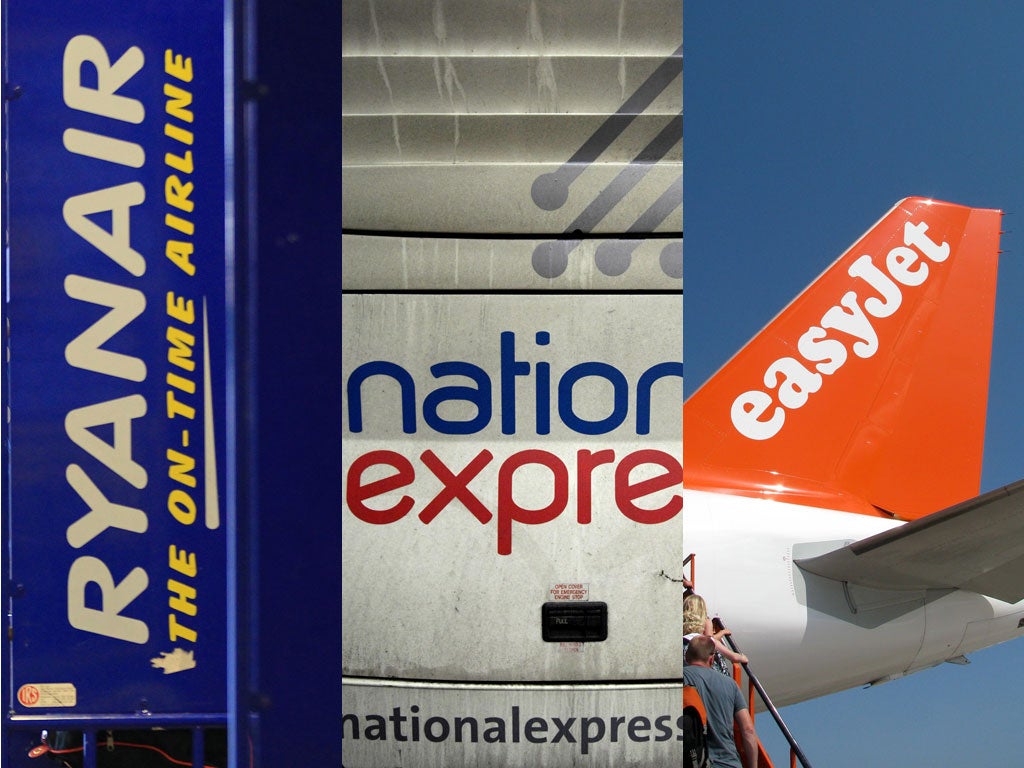Ministers call time on hidden card fees and rip-off phone lines
Boon for consumers as Government gets tough on big business and costly tricks of the trade

Your support helps us to tell the story
From reproductive rights to climate change to Big Tech, The Independent is on the ground when the story is developing. Whether it's investigating the financials of Elon Musk's pro-Trump PAC or producing our latest documentary, 'The A Word', which shines a light on the American women fighting for reproductive rights, we know how important it is to parse out the facts from the messaging.
At such a critical moment in US history, we need reporters on the ground. Your donation allows us to keep sending journalists to speak to both sides of the story.
The Independent is trusted by Americans across the entire political spectrum. And unlike many other quality news outlets, we choose not to lock Americans out of our reporting and analysis with paywalls. We believe quality journalism should be available to everyone, paid for by those who can afford it.
Your support makes all the difference.Excessive credit card surcharges, premium-rate telephone lines for customer complaints and hidden extra costs on online sales are to be outlawed in a crackdown on sharp practice by big businesses.
Ministers will set out plans next week to boost consumer rights by insisting customers know more clearly exactly what they are paying for goods and services. They will promise to end the practice of adding an automatic levy when a credit or debit card is used to pay for a holiday, an air or train journey, a concert ticket or a visit to the theatre or cinema.
The levy can add £8 to the price of an air flight or 75p to the cost of seeing a film – and the surcharge is often levied after customers have clicked through a succession of web payment pages. Ministers are proposing to allow retailers to add only the actual cost of processing a card payment, which can be as little as 10p.
Companies will be prevented from using premium-rate phone numbers, such as those beginning with 0870 or 0845, for customers with queries or complaints. As such numbers can cost up to £1 per minute, callers can rack up hefty charges just waiting to speak to someone – and even bigger bills if calling from a mobile phone.
The Government will introduce new measures to ensure they are charged nothing more than the basic rate for calls. A booking trick used by many travel companies to increase prices paid by online shoppers will also be targeted. Many firms automatically add the cost of extra services, such as insurance or access to airport lounges, unless customers "untick" a box on their booking form.
In future, customers will have to take an active decision by ticking a box asking for extra services. Other moves will entitle customers to more information about refunds, cancellations and delivery times – whether they are buying from a shop, online, at a fair or from a door-to-door salesman.
The plans were drawn up as part of the European consumer rights directive, which comes into force next year. On Monday, Norman Lamb, the Consumer Affairs Minister, will announce a consultation on implementing the directive in Britain. It comes eight months after the Treasury announced its determination to stamp out hidden credit card surcharges.
Mr Lamb said: "This is an area where Europe can make a big impact on our day-to-day lives. Many people will have been ripped off at some point by hidden online charges while booking a holiday, premium rate helplines when returning a purchase or extra credit card fees if you don't use your debit card. The consumer rights directive will end certain bad business practices and help consumers make well-informed decisions when buying products or services."
He said the moves would also see traders operate with clearer rules and responsibilities – and help ensure those who treat their customers fairly were not put at a disadvantage with less scrupulous competitors.
Richard Lloyd, executive director of the consumer group Which?, said: "Protecting consumers from hidden online charges, cracking down on rip-off premium-rate customer helplines and improving delivery services are actions Which? welcomes.
"Strengthening consumer rights is better for businesses and benefits the economy."
Customers will have to make an active decision by ticking a box asking for extra services
Sting in the tail: The extra costs
Phone numbers
Ryanair charged customers £1 a minute from a landline, while Wizz Air charged 77p and BMIbaby 65p. An analysis of 34 banks, insurers and energy firms in May found that 27 offered free numbers for new customers, and six for existing ones.
Automatic extras
National Express, Saga and Travelodge are among firms that add travel insurance to bookings unless travellers "untick" a box. Travelsphere levied £27 per person on a cruise for an ESTA permit to enter the US. It costs £9.
Credit card surcharges
Surcharges can add up to one third to the cost of the cheapest Ryanair and easyJet flights, while Thomas Cook adds up to 2.5 per cent for credit card bookings – equivalent to £50 on its most exotic destinations.
Join our commenting forum
Join thought-provoking conversations, follow other Independent readers and see their replies
Comments